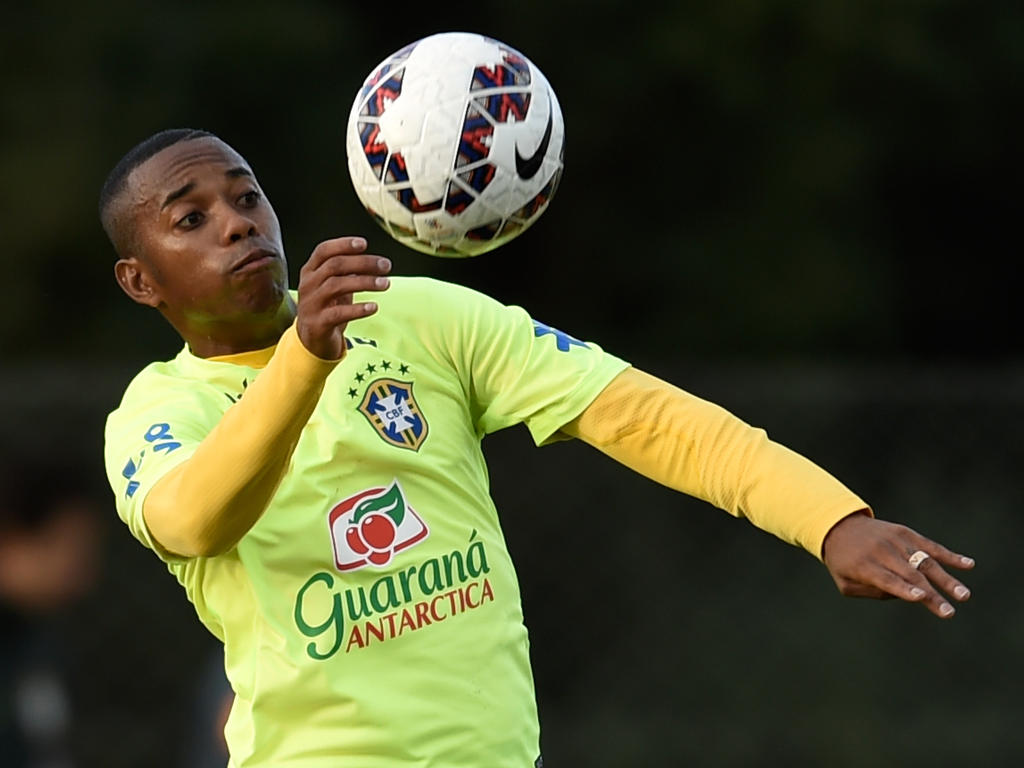Robinho, Paulinho perk up China's Brazilian blend

Luiz Felipe Scolari says he has stuck to a simple mantra since joining forces with Chinese powerhouses Guangzhou Evergrande in a shock move last month: go with what you know.
Hence the distinctive Brazilian flavour at the club now as the talents of superstars Paulinho and Robinho have been quickly snapped up by the World Cup-winning manager as he plots to further the reach of China's top club across Asia and beyond.
"This is a successful club and we want that success to continue," said Scolari.
"That's why we are recruited players we know can help us improve and the Brazilian style of these two players bring with them will do that," added the man who guided Brazil to World Cup glory in 2002.
Paulinho has already made a positive impression on Guangzhou fans since the 26-year-old midfielder signed for the club on June 29 as a 14 million euro ($15.2 million) recruit from Tottenham Hotspur after two seasons with the London club.
Fans will get their first taste of Robinho's distinctive style Thursday night when the 31-year-old former Real Madrid, Manchester City and AC Milan frontman takes to the pitch against Bayern Munich in the last of the German champions' three-match pre-season tour of China.
The pair join compatriots Ricardo Goulart, Elkeson, Alan Carvalho and Rene Junior on the books at Guangzhou, winners of the past four Chinese Super League (CSL) titles as well as the Asian Champions League in 2013.
Robinho only jetted into China Tuesday, arriving on a free transfer from Santos, and Scolari said whatever the striker does Thursday will be improved upon as he gets back up to match fitness.
"He has a job to play here and I know what he is capable of. The players here can learn from him," said Scolari, who left the player out of his Brazil squad for the 2014 World Cup when his side were humiliated 7-1 in the semi-final by a Germany side containing several Bayern players.
Scolari's signings are yet another indication of the financial clout now wielded by clubs plying their trade in the hugely popular Chinese Super League where Guangzhou Evergrande average more than 40,000 spectators per home match at their Tianhe stadium.
This season alone has seen the likes of international stars Tim Cahill (Shanghai Shenhua), Demba Ba (Shanghai Shenhua) and Asamoah Gyan (Shanghai SIPG) arrive in China on lucrative deals involving tens of millions of dollars.
Scolari was a shock replacement at Guangzhou last month for former Italy World Cup-winning captain Fabio Cannavaro, who left by "mutual consent" just 23 games into the season and with his side topping the table.
Seven games into his own tenure here and the Brazilian likes what he is seeing.
"It has been a new challenge for me but a good challenge so far and the players are happy that I am here," said Scolari, whose team are currently second in the CSL and into the quarter-finals of this year's Asian Champions League.
"The level of CSL is improving with four very strong teams at the top, all very close to each other. It's very competitive."
As the growth of football continues across China -- backed by President Xi Jinping's own passion for the sport -- the standard of the game at a national level seems, on the surface at least, to be rising as well.
China were surprise quarter-finalists at January's Asia Cup, where they lost 2-0 to hosts Australia, after years of poor results.
They have only once qualified for the World Cup, in 2002 when qualification was eased by not having to compete against the already-qualified Asian hosts Japan and South Korea for a place at the event.
Guangzhou's veteran captain Zheng Zhi also leads the Chinese national team after spending three seasons in Europe playing with Charlton Athletic and Celtic.
Zheng believes the arrival of quality internationals at a domestic level is helping the game develop, and that the Brazilians are playing their part.
"The Brazilians are bringing their style to our club and to the way we play the game and that is changing us," said Zheng.
"We have changed our formation, and our style. Chinese football is improving and learning these things is helping us all improve."








